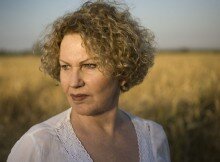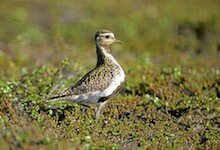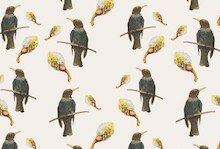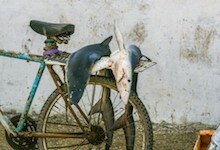
Possibly Israel's most popular living poet, Agi Mishol was born to Holocaust survivor parents in Transylvania, a historically Hungarian area of Romania, and was brought to Israel at the age of four. She earned her BA and MA in Hebrew Literature from the Hebrew University, her first volume of poetry appearing in 1972, and her output totalling 17 books to date.
‘[Mishol] takes up political subjects with a sly delicacy reminiscent of the Polish poet Wislawa Szymborska’s best work’, according to The New York Times. And Israeli literary scholar Dan Miron, in his critique of Mishol’s work and its reception, makes the claim that her poetry ‘acts not only in the literary-poetic field of an Israeli culture struggling to consolidate itself; it also makes a broader attempt to shape a way of life and a world view [...] In contemporary Israeli poetry, intense, white flames appear against the dark, burning background, whose smoke is greater than the fire. Anyone with eyes in his or her head can see: Agi Mishol’s poetry is one of the brightest of these flames’.
In 2014 Mishol received the Italian Lericipea Prize, an award previously granted to Seamus Heaney, Adonis, and Yevgeny Yevtushenko, along with two other Mediterranean women poets, the Tunisian Amel Mousaa and the Italian Gabriella Sica. And at home Mishol was awarded an honorary doctorate at Tel Aviv University, ‘in recognition of her standing as one of Israel’s most prominent and best-loved poets [and] her immense contribution to enriching Israeli culture’.
The late critic Isaac Meyers noted in a 2007 review of Mishol’s first English language collection, Look There (Graywolf, 2005), that she is ‘is highly respected and decorated, and her poems grab public attention – as happened when she published a poem about the 2002 bombing of the shuk in Jerusalem’, ‘Woman martyr’. Such poems led to an appearance on the PBS Newshour and to several of the PEN World Voices festivals.
Yet Mishol's sharp-eyed look at the society in which she lives in no way neglects the personal side of life that that readers seek in poetry, and which is no doubt also the reason she is often invited to international poetry festivals. According to Meyers,
Mishol’s individuality extends to her language, which incorporates everything from biblical quotations to military slang. One of her persistent quirks is to punctuate a poem, or end it, with a non-Hebrew phrase. This can still be seen in the English – for example in ‘Eros Pedagogitus’, in which the speaker, listening to a loved one read, imagines ‘flinging tiny lassoes/toward your lower lip/until the jewelry in my brain/chimes through my body/and I press my mouth/against your oxymoron lips’. Oksimoron, transliterated, is in the Hebrew original, standing out weirdly in its Greekness.
Mishol taught Hebrew literature teacher at the Be’er Tuvia High School from 1976-2001. After retiring, she served as a senior lecturer at Alma College for Hebrew Culture in Tel Aviv until 2008. In 2006 she was the artistic director of the International Poetry Festival, held in Mishkenot Sha’ananim, Jerusalem. From 2011-2014 she headed the Helicon School of Poetry in Tel Aviv, where she also leads creative writing workshops. Mishol has lectured and taught creative writing at Ben Gurion University, Tel Aviv University, and the Hebrew University in Jerusalem where she also served as Poet-in-Residence (2007).
Co-winner of the inaugural Yehuda Amichai Poetry Prize in 2002 (and a previous winner of the Tel Aviv Foundation and the Israeli Prime Minister’s awards), Mishol is also a peach, persimmon and pomegranate farmer. She is the mother of two and grandmother of six.
Bibliography
Nanny ve-shneinu (Nanny and both of us), Akad, Tel Aviv, 1972
Srita shel hatul (A cat's scratch), Hakibbutz Hameuchad, Tel Aviv, 1978
Gallop, Hakibbutz Hameuchad, Tel Aviv, 1980
Yoman mata (Plantation notes), Keter, Jerusalem, 1986
Yonat faximilia (Fax pigeon), Hakibbutz Hameuchad, Tel Aviv, 1991
Ha-shfela hapnimit (The interior plain), Hakibbutz Hameuchad, Tel Aviv, 1995
Hinneh (See), edited by Natan Zach, Helicon-Tag, Tel Aviv, 1997
Re-e sham (Look there), Helicon-Tag, Tel Aviv, 1999
Makhberet ha-halomot (The dream notebook), Even Hoshen, Ranaana, 2001
Nerot netz ha-helev (Wax flowers), Even Hoshen, Ranaana, 2002
Meevkhar veh-hadashim (New and selected poems), Mossad Bialik and Hakibbutz Hameuchad, Jerusalem & Tel Aviv, 2003
Moment, Hakibbutz Hameuchad, Tel Aviv, 2005
Koreem dvareem (Things happen), Mossad Bialik and Hakibbutz Hameuchad, Jerusalem, 2007
Bikur bayit (House call), Hakibbutz Hameuchad, Tel Aviv, 2009
Hai veh-zomekh (Animal, Vegetable, Mineral), illustrated by Jan Rauchwerger, Mossad Bialik, Jerusalem, 2011
Sidur avodah (Working order), Hakibbutz Hameuchad, Tel Aviv, 2012
Ara (Awake), Hakibbutz Hameuchad, Tel Aviv, 2013
Malakh ha-heder (Domestic angel), Hakibbutz Hameuchad, Tel Aviv, 2015
In English
Look There, translated by Lisa Katz, Graywolf Press, St. Paul, MN, 2006.
In French
Journal du verger: Choix de poems, translated by Emmanuel Moses & Esther Orner, illustrated by Liliane Klapisch, Caractères, Paris, 2008
In Romanian
Şeherezada, translated by Riri Sylvia Manor & Ioana Ieronim, Institutul Cultural Român, Bucuresti, 2008
In Italian
In Poesia 21:232 (36-46), translated by Ariel Rathaus, Milano, 2008.
Links
Poems in Hebrew and English
‘She-dog’ in Blue Lyra Review
‘My father speaks again’, ‘Mother adds’, ‘Something’ and ‘My dog libby’ in The Bakery Poetry
‘Transmigration of souls’ and ‘Monday’ in Universe of Poetry
‘Forced labour’ in the Jewish Quarterly
Articles in English
‘Poet Agi Mishol is surprised she’s become hot stuff’, feature in Haaretz
Joanna Chen on translating Agi Mishol in the Los Angeles Review of Books
Review of Look There in The Jewish Daily Forward
Audio
On Lyrikline, Berlin (in German and Hebrew)
Video
At the Parma Poesia Festival (in Hebrew and Italian)
Reading of ‘Transmigration of Souls’ in Utah (in Hebrew and English)
Reading with Salman Masalha (in Hebrew)







